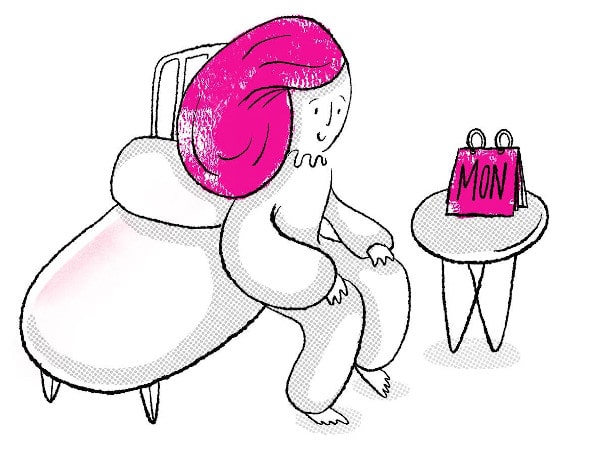Interview Questions and Interview Tips
. . . A Guide from Prosperity.ie
So, you got the interview...
A guide to presenting
yourself in the best light.
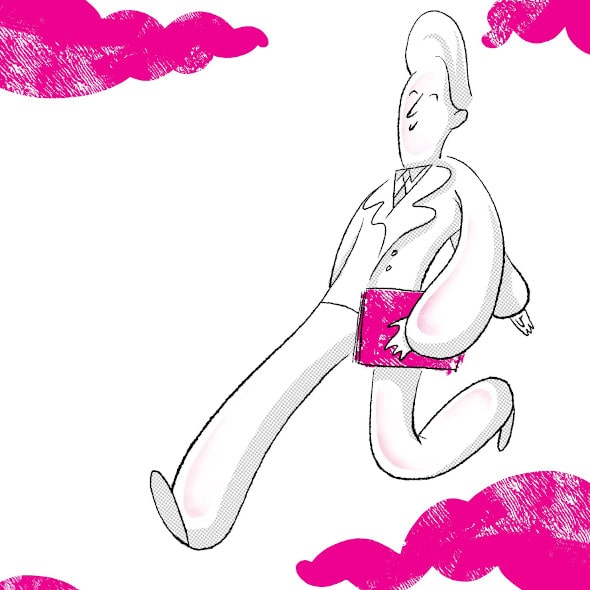
So, you got the interview...
A guide to presenting
yourself in the best light.
So, you got the interview. Now to convert that interview to another interview and ultimately to a job offer : )
So, before we get started...
Please always keep this in mind: the client is ultimately looking for someone who can add value to their organization. So, demonstrate your eagerness and your drive to do so and show that you have what it takes to drive change in the company and that you are fully committed to adding value far in excess of your cost to the company.
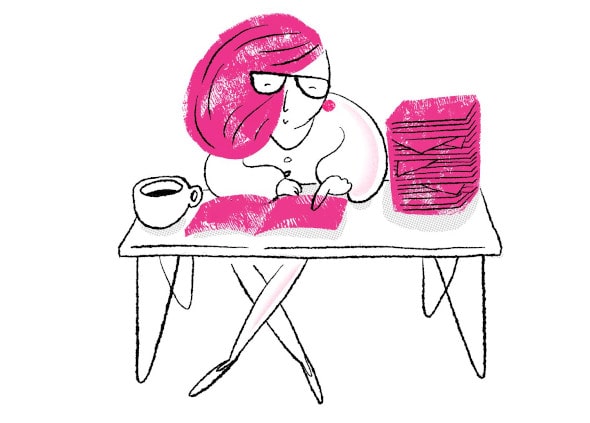
OK, now that we got that out of the way...
Preparation is key. We hear it so many times from clients – the interviewee didn’t bother to prepare. By that: they hadn’t completely familiarised themselves with the job description or they hadn’t adequately researched the company (it is surprising the number of candidates who go for interviews barely knowing the first thing about the company they are interviewing at).
- Benjamin Franklin
Before the interview
Research, research, research.
By that we mean “do your research!” but we also mean that you should do your research in three phases, moving from broad to specific; the company, the role, the interviewer(s). Before we continue, we should point out that the interviewer(s) can also research you. It is important to remember that they have the same tools at their disposal as you do. The same way you can, and should, conduct research on them, is the same way they might conduct research on you. The internet and social media have changed the game of recruitment and interviewing, and you must change with it. Don’t assume that potential employers are not looking at your social media accounts. They very often are. So, you need to give them something strategically curated to look at. We’re not saying that you should carefully plan each and every post, we are merely saying be mindful of what you post. A good way to go about it is to ask yourself; Could posting this on a public wall in my workplace for all to see potentially negatively impact my professional credibility or rub anyone the wrong way? If the answer is not a strong no, don’t post it.
Research the company:
You should know everything there is to know about the company, i.e. when it was founded, who by, its core ethos, its products or services, its goals and challenges, etc.
It may seem like a lot of effort, but it is necessary for three seasons...
Firstly, it’s impressive. Candidates who know about the company always stand out from those who don’t.
Secondly, the more you know about the company, the less likely you are to get tripped up by questions designed to differentiate those who didn’t do their research from those who did. It is not a good strategy to simply equivocate or waffle through these questions. Just like mothers, hiring Managers always know! So, do the research : )
And thirdly, having a good understanding of the company means you can ask intelligent questions and better interact with the interviewer(s), which, as many recruiters will tell you, significantly improves your chances of making a good impression and getting the job.
Asking questions also showcases curiosity and initiative, traits that are prized in every occupation. Prior to your interview, you should research the company’s website, blog, a prospectus, press releases, and awards, as well as any social media accounts the company has a presence on.
Research the role:
Every recruiter has seen it: that candidate who strolls into an interview with only the vaguest notion of what the role entails. This person has defied some laws of the (hiring) universe to have made it to the first interview stage and it is generally certain that they won’t be making it to the second. Do not be this person. Research the role thoroughly and be sure you understand the job spec. Know it inside and out. It is all about relevance, so be able to clearly connect your experience and skills to the role’s requirements.
Research the interviewer(s):
Interviewers are gatekeepers, they are what stands between you and the job. Therefore, it’s a good idea to ask who you will be meeting with, and research them before the interview. Most forms of social media are public domains, meaning anything published there is fair game, so use this to your advantage. Such sources could be utilized to learn what the interviewer’s specific role in a company is, which would allow you to ask more engaging and relevant questions about the company. But be careful not to cross a boundary.

So please, no mention of their cat photos or just how amazing their wedding photos are. You want a job, not a barring order.
Research the location:
Be sure to research the location of the interview as well. Know how far it is, how to get there, and how long it takes. We also highly recommend planning for the possibility of extreme weather, meteor strikes, road works, etc. Be meticulous and plan for the worst.
During the interview:
Now that you have all of your pre-interview research done, let’s discuss how you should be and what you should do during the interview.
What You Should Show
As you are being represented by Prosperity, it is likely you are anticipating an interview for a marketing, sales, design or development role, so you should be no stranger to the core aim of many of these roles; attract the right attention and maintain it long enough to sell the product to the buyer.
For now though, you are the product and the potential employer is the buyer : )
You need to make the best impression possible and successfully sell yourself, and one of the ways to market / sell / convey a product is good packaging.
So, we’ll start by advising you on how to present yourself.
Dress for the occasion.
This may seem obvious, but there are candidates who think shorts or dirty trainers, or both are acceptable interview attire. They generally are not. Dress for the effect you want. If you know the sort of company you’re interviewing for, you’ll generally have a good idea of what to wear. For example, a corporate firm with a marketing department may dismiss anyone not wearing a suit, while the smart casual look would probably suffice in a digital marketing agency. If you are unsure of the dress code, ask. The recruiter will almost always have this information and if not, they will find it out. After all, they want you to do well.
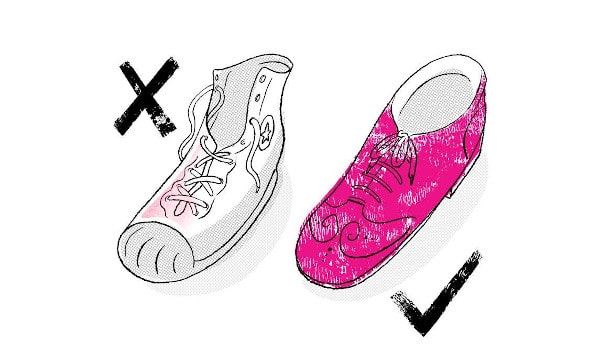
Fluency in body language is key.
Have you ever wondered why supermodels walk as though their spines have been replaced by wooden poles? Well it’s because they understand that no matter how gorgeous the garment, it’ll look like rags on a slouching figure with a pitiful posture. This demonstrates the importance of posture and body language. We have established how pivotal it is to dress the part, now you must act the part. This does not mean that you pretend to be something you’re not, it just means you should pay attention to your posture, so don’t slouch, and throughout the interview maintain some awareness of how you present yourself.
Smile.
This advice, albeit rather simple, can potentially make or break your interview. Humans respond favourably to smiles, and as intimidating as some of them can be, interviewers are only human (it may help to remember that it is likely that they too had to interview for their own roles). This means that there is a much higher chance of them liking you if you smile. We understand that this can be a daunting prospect if the interviewer themselves are as stone-faced as professional poker players. But, always remember that their stoicism could serve the singular purpose of testing your mettle. So, don’t let it rattle you. Smile regardless.
Avoid closed body language.
Interviews can be stressful situations, and it’s entirely normal (and even acceptable) to be nervous, but you must resist the urge to close off physically i.e. cross your arms. Any psychologist will tell that that we subconsciously cross our arms in uneasy situations because we are trying to put a physical barrier between ourselves and the cause of our unease. But try to remember you made it to the interview stage, so as intimidating as the interviewer or setting may be, you were impressive enough to make it this far. Furthermore, they actually want you to tick all the boxes and get the job. So, take a breath, and open up. (You might also accept a coffee or water or place a notebook and pen in front of you as a focus for your hands).

Acknowledge everyone in the room.
If you are being interviewed by more than one person, be sure to engage with them all, even if only one of them is asking the questions. In fact, we would go as far as to say especially if only one of them is asking the questions, because this could be a way of testing your social awareness and ability to work a room. Being able to work a room is a skill that will benefit you in many facets of life, so take this tip to heart.
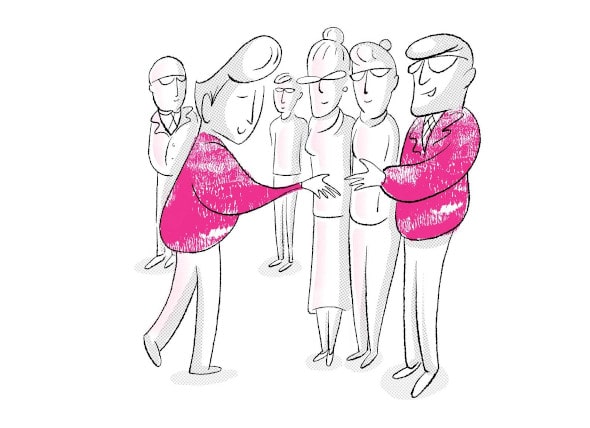
Be enthusiastic.
We don’t expect you to consume barrels of coffee to simulate hyper enthusiasm and buzz your way into an interview, pumping hands and squawking manically. But we do expect you to show that you want to be there and that you want the job. Be engaged. Listen carefully to the interviewer. Make sure you are actually answering the question that they have asked, and then at the end ask relevant questions of your own.
Don’t smoke beforehand.
Many smokers do not realize how long the scent of smoke can linger on one’s clothing and breath. In fact, just being in the vicinity of cigarette smoke can be enough to cause you to smell of smoke for a whole day, regardless of whether you smoke or not. We do understand that the moments prior to an interview can be stressful, and you may feel like smoking to calm your nerves. But, prior to an interview, it’s best to just avoid smoking all together (better to vape or chew gum) because it can negatively impact how you come across from the perspective of some interviewers.
Smell good.
On the topic of smoke and scent, be sure that you are clean and smell fresh. This may seem obvious, but once again, you would be surprised at how many people seem to forget how important it is to smell good. Science tell us that the sense of smell is so visceral and evocative that it can trigger latent memories, conjure a variety of emotions, and even stimulate certain parts of the human brain. Indeed, scent is a powerful weapon in your arsenal, do not overlook it. However, do refrain from using an eyewatering amount of deodorant, perfume, or cologne.
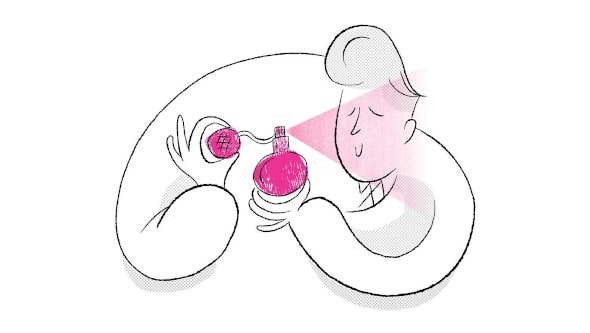
When in doubt, imitate.
Have you ever walked into an interview and not known how to act? Have you ever been unsure as to the level of formality or tone of the interview? Well, the solution is simple. When in doubt, imitate. Observe the scene and act how everyone else does. If the interviewer is sitting up impossibly straight, you do the same. If they slouch a bit and appear more casual, then you do too. Imitation is more than just the best form of flattery, it’s the perfect way to never be caught at odds with the tone of the atmosphere. Furthermore, it’s a known psychological fact that humans tend to feel more comfortable around those who display similar behaviour and body language. Thus, a little bit of mirroring should put the interview more at ease, which should predispose them to liking you a bit more. Just don’t be too obvious about it.

Shake well.
Don’t underestimate the effect of a firm handshake. It conveys confidence and presence. But don’t squeeze too hard – you don’t want your interviewers to feel as though they have been somehow assaulted.
Location, location, location.
In an age where remote work, unlimited data, Skype calls and Facetime have become the norm, more and more interviews are being conducted remotely. In these cases, it’s crucial to be intentional about your location during the interview. Don’t be shouting from the middle of a crowded cafe or whispering in the bathroom amidst random flushes. Always choose a location that is quiet, one without distraction, and where you can talk normally and clearly, and in the case of video interviews, choose a place that is clean and visually appealing.

What You Should Know
Have you ever ordered something online only for it to arrive and be far less impressive than stated in the advertisement? Or perhaps you’re familiar with the feeling of opening a beautifully wrapped present only to discover that the wrapping paper was the highlight of the gift. Sounds disappointing, right? Well welcome to the world of recruiters and interviewers alike. Some candidates have self-presentation and CV writing down to an artform, meaning that they know all the right things to say, do, and wear. But often, such candidates are unable to deliver on what their glowing CVs have promised.
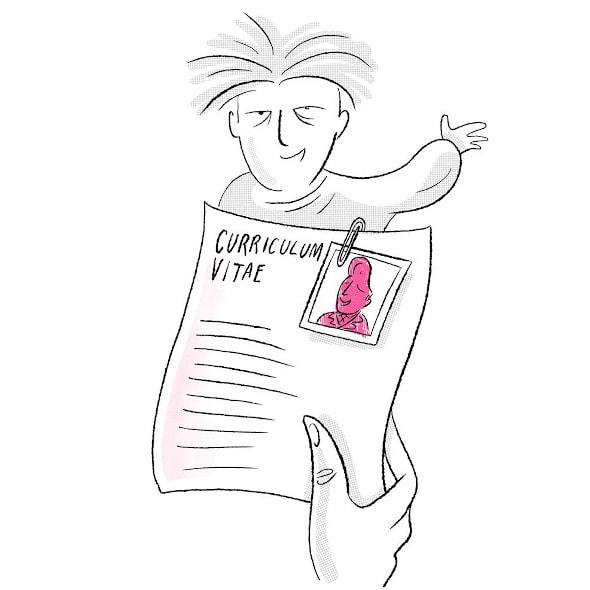
We’ll help you ensure that you don’t come across more flash than substance by giving you a few pointers on how to show you have the relevant skills and knowledge. We will first run through some general questions you might be asked, and then we will give you some advice tailored to the most common sectors we deal with. Afterwards, we’ll also show you a few examples of questions you should probably ask the interviewer at the end of the interview.
General Questions
General questions can be quite varied, meaning there really is no way to tell what specific questions you will be asked. Luckily for you, they can all be answered very well by following five simple rules:
- 1) Stay relevant to the role.
- 2) Never stop selling yourself and your skills.
- 3) Be honest.
- 4) Be polite.
- 5) Don’t speak ill of any previous employers.
Tell me about yourself.
A lot of candidates struggle with this question because many of them are not sure what exactly to say. This is understandable because there is so much you could say. How are you to filter it down to just a few things? And how are you to know if they are the “right” things? Well remember rule no. 1. Stay relevant. That’s the key. At this point, you should be familiar with the job spec. Yes? Well then just mention the things about yourself that connect you to the job. For example, if you’re interviewing for a digital marketing role, talk about your passion for marketing or your excitement about when you first got Google Ads certified.
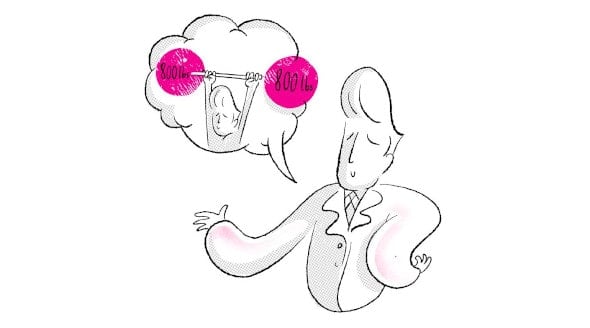
What are your strengths?
Rule no. 1 pretty much covers this one too. Mention strengths of yours that relate to the role. So, if the role is managerial in nature, talk about your people skills, ability to work under pressure, or your managerial competence.
Why do you want this job?
Rules no. 2 and 3 would be most applicable here. It is important to continue selling yourself, even now. Talk about why you want the job, but also present what you can bring to the role and why they should want you. But don’t exaggerate; be as honest as you can be.
What was your reason for leaving your previous job?
It’s always best to be honest here, however, do keep rule no. 5 in mind. No matter what you do, do not speak ill of any previous jobs or employers*. In cases where your previous employers were so bad that they left you with PTSD (and they weren’t the US army), opt to equivocate and be as vague as you can be, but never give in to the temptation to directly or indirectly say anything bad about them. It is worth noting that particularly ruthless interviewers may attempt to bait you into doing so, merely to see whether you will or not. Do not fall for it. Stick to your guns and say nothing bad.
*Massive turn off to prospective employers
What do you know about us?
If you’ve gotten this far, then you’ve probably read the section pertaining to the importance of research, so this question should pose no challenge to you : )
Tell me about a time you were faced with a difficult situation and describe how you solved it.
Rules no. 1 and 3 are most relevant here. Don’t make up an example, use a real one. But, choose one that showcases the skills most relevant to the role. For instance, let’s take our managerial role example from before. If you were asked this question at an interview, it would be wise to choose a challenge that you overcame using your people skills or organisational skills.
Secondly, when talking about the chosen situation. It’s important to convey it as clearly and concisely as possible. Your interviewers are likely to be busy people with 21st Century attention spans, so ensure your description is structured and short. We suggest starting with a description of the difficult situation, then talking about what you did to solve it, and then conclude with the happy outcome.
Prosperity Consultants often advise candidates against using such words as “would” and “should” during interviews because they give no indication as to what you have done or can do. Unless you are asked a question that demands you respond with speculation or hypothesis - i.e. how many basket balls are there in Sydney? (correct response: I need a whiskey) - focus on what you have actually done, not what you would do or what you think should be done. To put it frankly, interviewers tend to care more about what you have done rather than what you would do.
Humblebragging
In an effort to impress potential employers, some people will disguise bragging as self-criticism. According to a report from Harvard Business School, this behaviour, otherwise known as “humblebragging,” can be a turn-off. The authors of that paper asked college students to write down how they’d answer a question about their biggest weakness in a job interview. The results suggested that more than three-quarters of participants humblebragged, usually about being a perfectionist or working too hard.
Yet, independent research assistants said they’d be more likely to hire the participants who were honest and found them significantly more likable. Those students said things like, “I’m not always the best at staying organized” and “sometimes I overreact to situations.” Another alternative in a job-interview situation is to talk about weaknesses that don’t directly relate to the position — for example, a fear of public speaking if you’re applying for a Copywriting role.
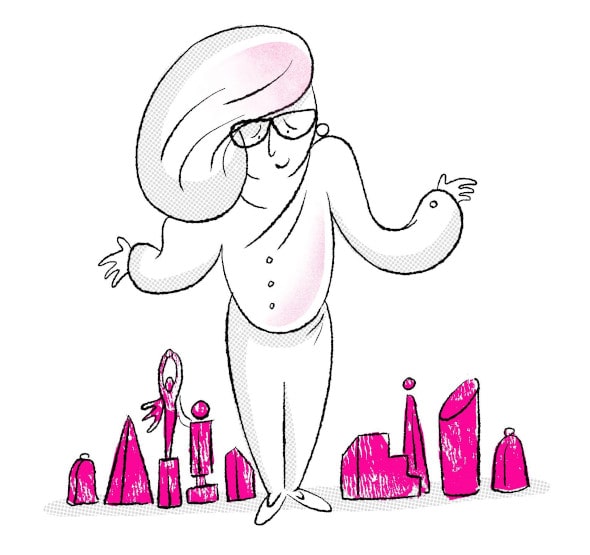
Sector Specific Advice
Marketing:
Know the interviewer’s market and products/services and who they are competing against. Know their current marketing profile/strategy. Prepare a report on how you used the same marketing channels that they use, and what results you have attained. If you’re going for a more strategic/senior role, have a strong idea of what they might do better, and divide by both online and offline channels, and also justify the use of each.
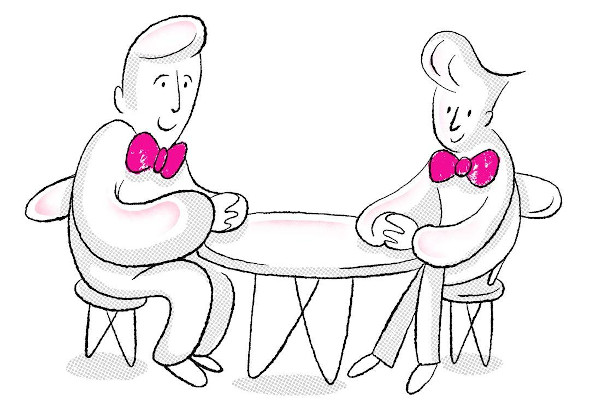
Performance marketing:
Know your numbers. Know your KPIs and how you have been performing against them. Have your numbers for your CPCs and CPAs etc. And be highly informed on your conversions. Be clear on what channels you have been using and how they have been performing. Be clear on your target markets and your customer personas. Know your market and your competitors. Be clear on what types of A/B testing you have performed and the results. Know your tools. Be clear on your reporting and analytics environment. The more data driven, and detail orientated you come across, the better.
Design:
Make sure your design portfolio is up to date and features not only your best work but also a good selection of work that is required in the role, you can provide a tailor made .pdf selection of most relevant work to support your application; no need to redo all of the portfolio each time/make sure you are familiar with the requirements and that they are in line with your design skills and expectations; don’t go for an inhouse role with strict brand guidelines if your goal is to work on a lot of creative projects. Prepare to talk about your design process and which parts of the work are your own and which are a collaboration. Talk about the timeframes you have worked to in the past. It’s also important to research existing work and be prepared to do a task.
Data:
An important tip when going for a Data Analytics/Data Scientist role is to clearly understand what the data is being used for? Is the role about customer data or is it about data regarding a product for company use? Understanding why the company uses the data is a key factor when going for an interview. For example, what impact will this role have on the commercial team? Also, as data is becoming increasingly prevalent in its application, and is utilised more generally across companies, you need to understand if the role requires any reporting to non-technical people. If there is a visualization tool, you need to find out to what extent you need to know about this. In terms of language, be specific in your abilities. For example: clearly define in your CV at what level you’re at in Python or Tableau. Very often, we find ourselves having to ask at what level a candidate is at in each skill. You might score your abilities: this is an exercise that can save the HR/Hiring Managers time and effort. This will also help in terms of additional training that you may need and clarifying whether the company will be in the position to provide it.
Do you have any Questions for us?
At some point during the interview, you will most likely be asked if you have any questions. Your answer should always be yes. This is because asking questions will help you understand the role a little better, give you a stronger idea of what might be expected of you, and it’ll help you seem more engaged. It will also emphasise your intelligence: Intelligent people ask questions.
If you paid attention during the interview, it’s certain you’ll have no problem coming up with genuine, relevant, questions of your own. But here are a few commonly asked questions that our interviewers often get after interviews:
- • If I am successful in this process, who would I be reporting to?
- • If I am successful in this process, how would advancement be structured?
- • If I am successful in this process, what are the opportunities for training and further development?
- • How would you define the company culture and working environment?
- • What are the company’s goals?
- • (To the interviewer) What motivates you most about working for this company?
- • I very much enjoyed meeting with you today; can you please tell me what the next step in this process is?
We also highly recommend that you contact your recruitment consultant after the interview. This is because a post-interview call is a great opportunity to raise any concerns you may have, pose post-interview questions, give feedback, etc. The recruiter might even be able to give you some key information, such as how long it usually takes to make a decision, etc.
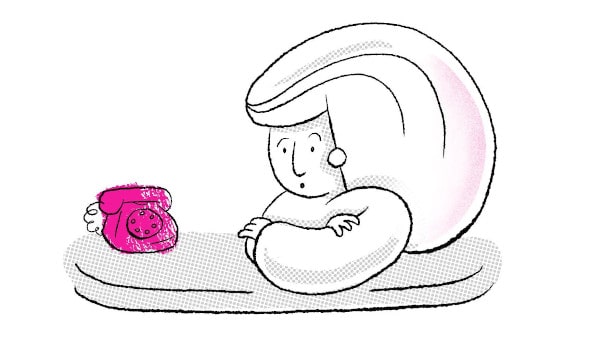
After the interview
So, you’ve just walked out of the interview. You’ve done all that you can do and now your fate is completely out of your hands, right? Wrong. The game isn’t over until you are informed that you did or didn’t make it to the next stage or get the job. While it’s true that at this point there isn’t much more you can do, there are still a few things one can do to positively reinforce oneself in the mind of the interviewer or company.
The first is to send a thank you card to the company the day after the interview, addressed to the person who interviewed you. In it, you should express how much of a pleasure it was to interview for them. Once again briefly note why you are the ideal candidate for the job (because you should never miss a chance to sell yourself), but limit this to two sentences maximum. Then conclude by thanking them for taking the time out of their busy schedules to meet with you.
The second piece of post interview advice we would offer is to send a follow-up email one week after the interview, if you haven’t gotten a response by then, that is. We understand the waiting period can be quite frustrating, but it is essential to remain as polite and pleasant as possible in the email. In the email, you should first thank them for meeting with you a week ago, express that you understand that they are most likely very busy, and then inquire as to the status of your application. Keep it short and simple.
Some questions will have come to mind during the interview, but it didn’t seem appropriate at the time to raise them with the interviewer. Or, questions occasionally come to mind on your way home from the interview, at which point it’s definitely too late to go back and ask. This is why we suggest that as soon as the interview ends, you make notes of how it went, how you felt, any questions you still have, etc. Then, either just after the interview or the day after, call your recruitment consultant and discuss your notes and questions. This is a good way to ensure peace of mind for yourself as well as a good way of providing useful feedback for the recruiter.
Conclusion
So, we’ve given you the tools you need to successfully prepare for and ace an interview. The rest is up to you. Remember: be smart and strategic in all that you do. Whoever said life isn’t a competition was wrong (if indeed someone did say that), especially regarding recruitment and interviewing. Every other candidate is your competition; it’s as unfortunate as it is true. Therefore, you must stand out from the crowd and make it undeniably clear why you are the best person for the job.
- Michael Porter
We at Prosperity hope you found this guide helpful, and as always, if you need any help or have any questions, don’t hesitate to call or email us.
